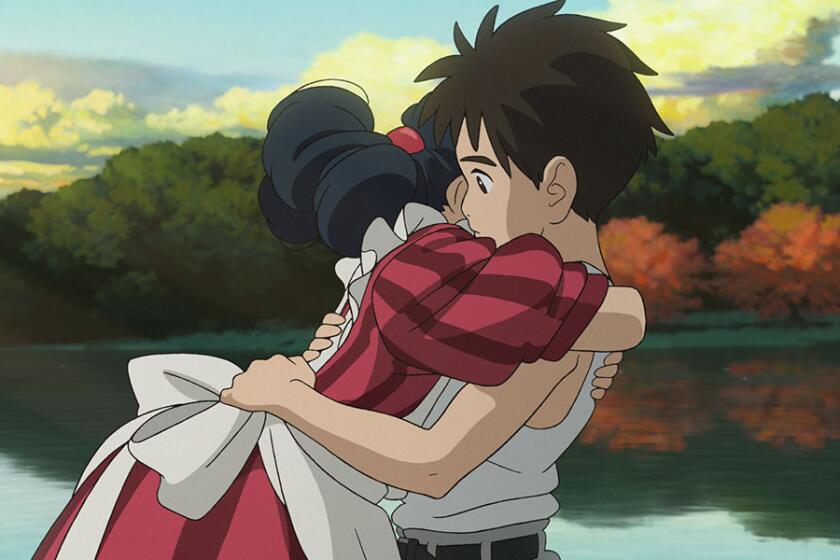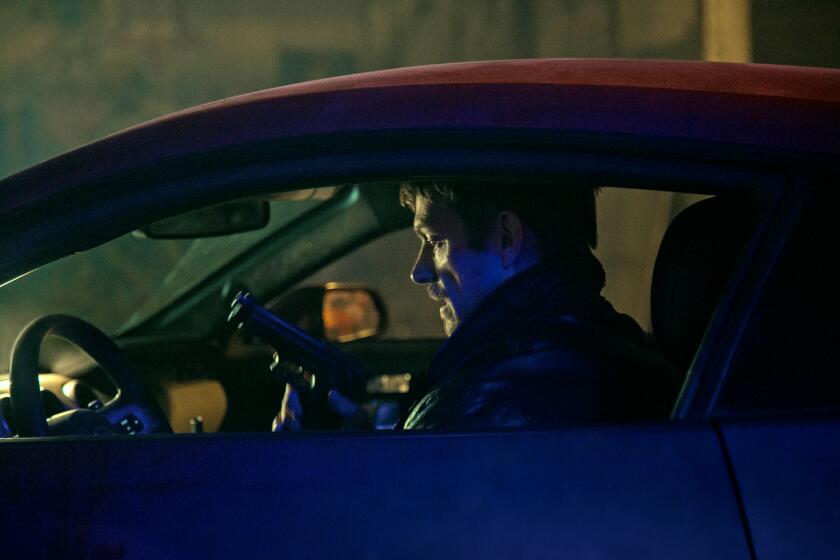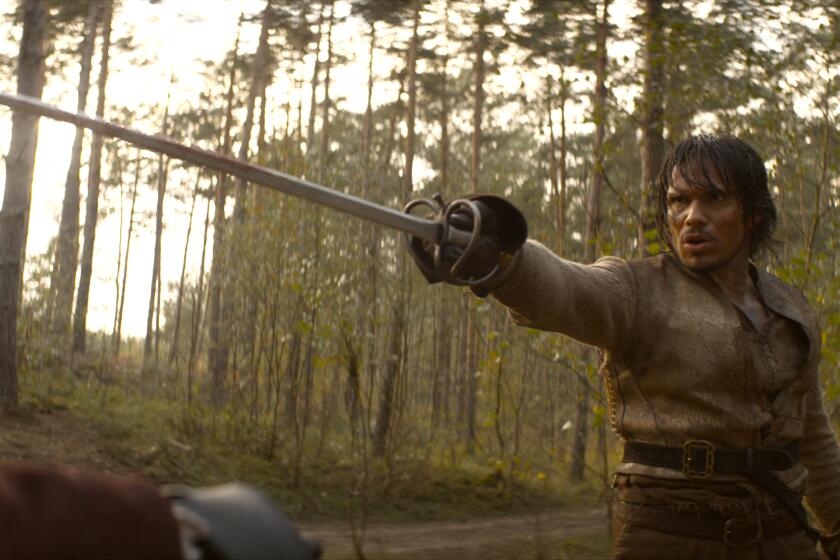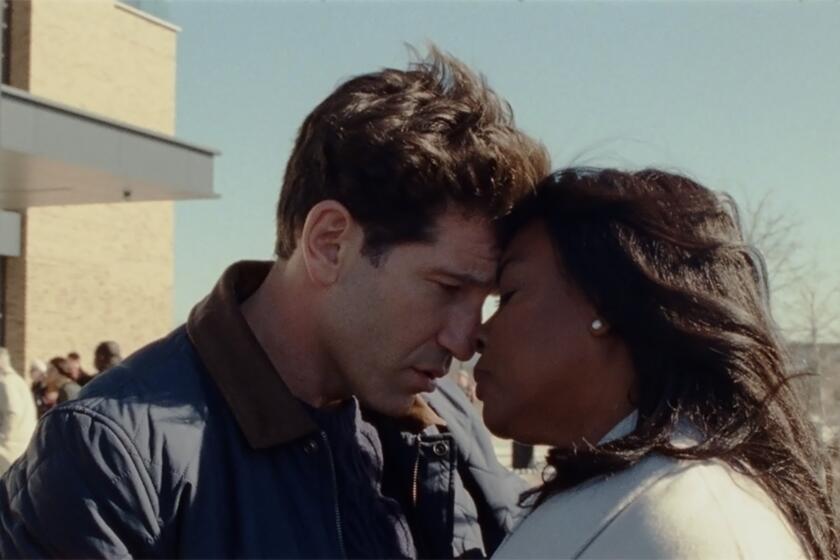Review: In ‘Concrete Utopia,’ a ruined Seoul seeks refuge, but the residents have other ideas
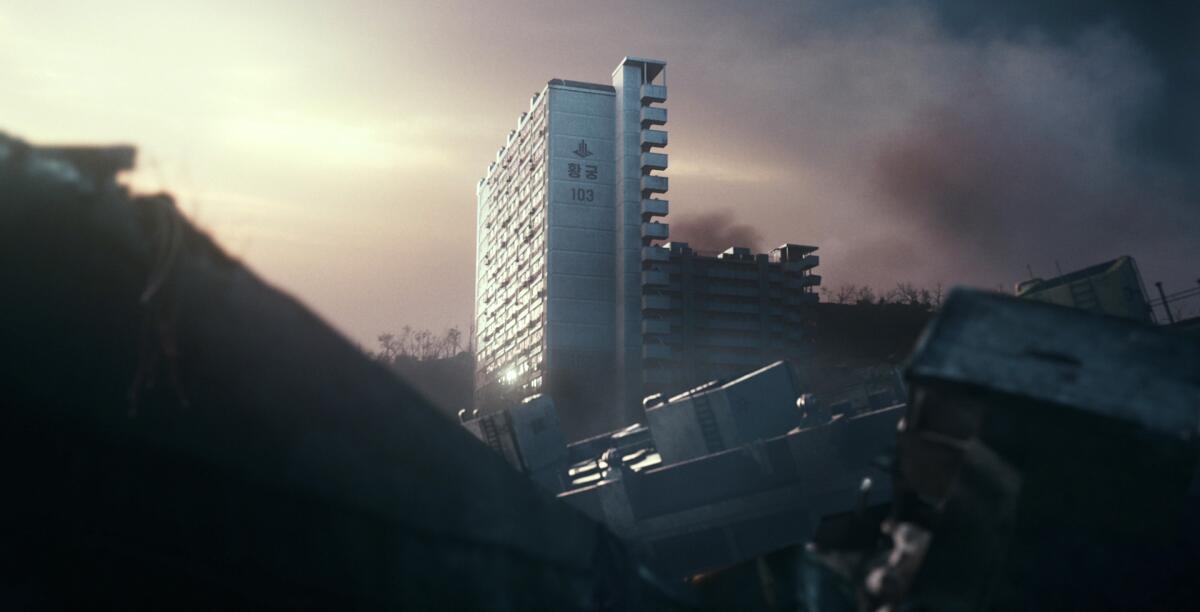
Rather than an action-packed disaster movie, “Concrete Utopia,” South Korea’s Oscar entry for international feature, plays like a brutal indictment of human nature, both at its most instinctual in pursuit of self-preservation and in its ability for collective care.
You won’t find the propulsive thrills of “Train to Busan” or the stylization of Ben Wheatley’s “High-Rise” in this philosophically rich, blood-drenched marvel from director Um Tae-hwa, but instead a film closer in aim to a gritty post-apocalyptic saga, except there is no contagious virus running amok, only people giving in to dangerous tribalism.
Seoul lies in ruins after a catastrophic earthquake. As far as the eye can see, only the Hwang Gung apartment complex remains standing in a sea of rubble. Food and water quickly become scarce for the survivors in this once-generic, now miraculous building. Still, the impulse of Min-sung (Park Seo-joon), a young public servant, and his wife Myung-hwa (Park Bo-young) is to help those less fortunate — at least at the beginning.
Amid the chaos, Young-tak (Lee Byung-hun), a brave middle-age man who steps in to stop a fire, emerges as the residents’ unanimously voted leader. His first order business? To violently evict everyone whose home was destroyed and sought refuge at Hwang Gung. Exiling these outsiders means sentencing them to death. He is OK with that.
For a while, the apartment owners manage to build a functioning microcosm with an egalitarian division of tasks, but their small society soon devolves into a fascist state. Young-tak’s dictator-like tactics and his use of dehumanizing language against those he deems unworthy of the same privileges — a timely touch — go unquestioned because he delivers resources and order.
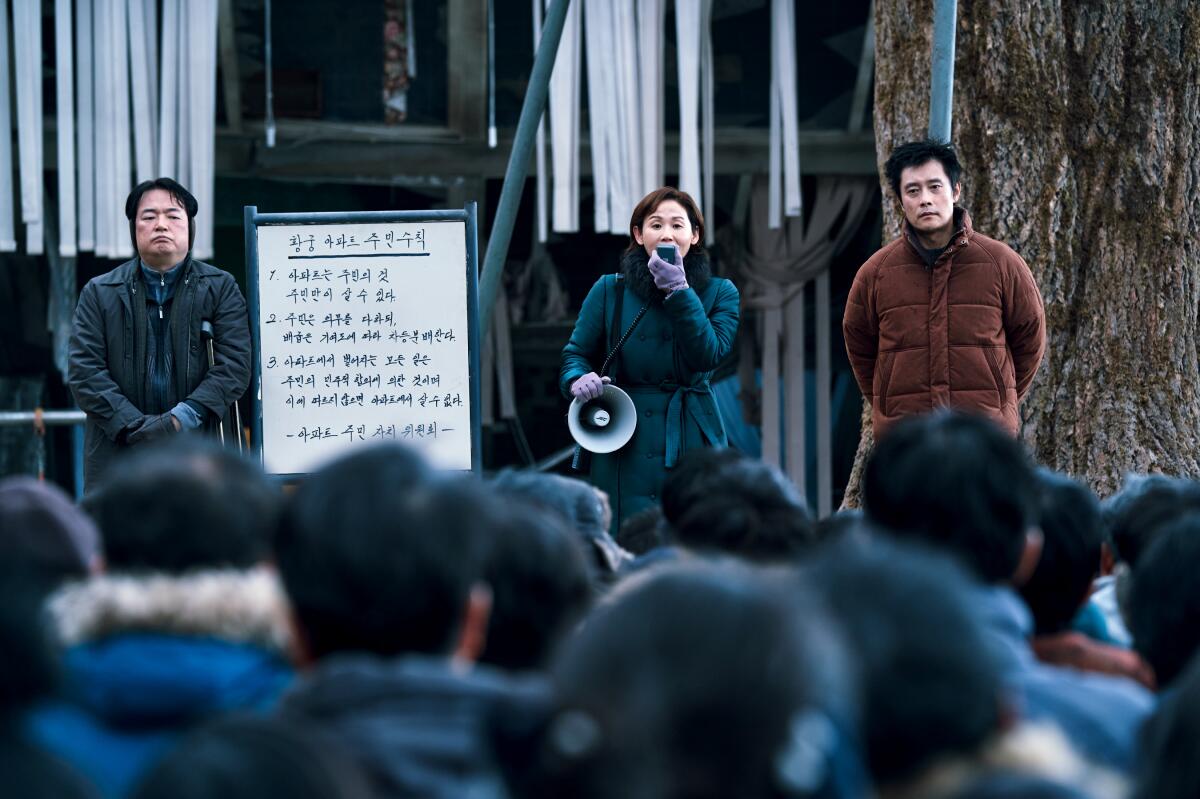
Though the humor and acting in “Concrete Utopia” can occasionally feel broad, Lee’s viscerally monstrous performance grounds a high-stakes drama. Young-tak is willing to capitalize on the calamity to fashion himself into the powerful entity he could never be during the before times, when he struggled to attain upward mobility.
Yet it’s Parkas Min-sung, selected as the leader of the anti-crime force and increasingly compromised, who gives the most ambivalent portrayal. Min-sung obeys Young-tak to ensure access to resources, but at home Myung-hwa can’t hide her disappointment in him. What good is it to survive if it entails losing their humanity?
A keen counterpoint to these moral quandaries, Cho Hyung-rae’s cinematography brims with bold choices in tandem with the effective visual-effects work. His images not only push aesthetic ingenuity but instill meaning, like a moment when the residents’ shadows, dancing around a fire, project against their beloved building’s facade, as if they were an ancient clan in a cave.
Offering no facile judgment on the “villains,” director Um and co-writer Lee Shin-ji’s adaptation of Kim Soong-Nyung’s webtoon “Cheerful Outcast Part II, Cheerful Neighbor,” presents some characters as naively incorruptible bastions of righteousness who, despite their stance, still benefit from the dirty work of those who go out and risk it all to secure everyone’s basic necessities. Those who believe themselves to be virtuous are in for a rude awakening that doing the right thing in crisis isn’t always as clear-cut.
The residents’ cardinal sin is placing all the responsibility on a single man, eager to wash their hands of any guilt. As outside threats and infighting bring Hwang Gung to the brink of collapse, a hope for something better flickers precariously.
'Concrete Utopia'
Not rated
In Korean with English subtitles
Running time: 2 hours, 10 minutes
Playing: In limited release
Only good movies
Get the Indie Focus newsletter, Mark Olsen's weekly guide to the world of cinema.
You may occasionally receive promotional content from the Los Angeles Times.
